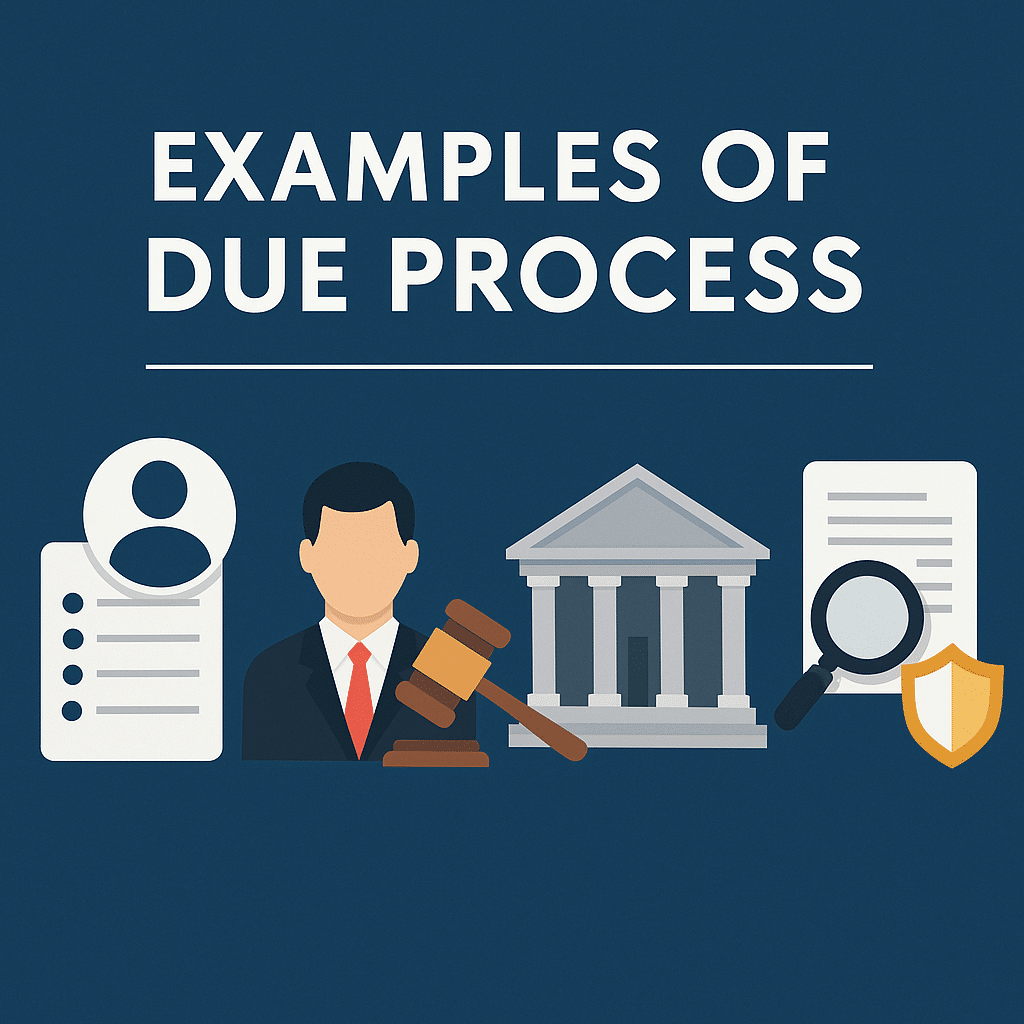
If you or a loved one is facing criminal charges in Maryland, you’ve probably heard the phrase “due process” — but what does that actually mean, and how does it protect you? At its core, due process ensures that the government cannot deprive you of your life, liberty, or property without following fair and established legal procedures.
In this post, we’ll break down some real-world examples of due process in Maryland criminal cases and explain how these constitutional protections can impact your case. Understanding these examples of due process is crucial for anyone involved in the legal system.
What Is Due Process?
Due process comes from the Fifth and Fourteenth Amendments of the U.S. Constitution. In criminal cases, due process means you must be treated fairly from the moment you’re investigated until your case is resolved. Maryland law reinforces these protections in both state statutes and court procedures.
There are two types of due process:
- Procedural Due Process – The right to fair legal procedures.
- Substantive Due Process – The right to be free from laws that unfairly restrict your rights.
Let’s look at specific examples of how due process shows up in Maryland criminal defense cases.
1. The Right to Be Notified of Charges
If you’re arrested in Charles, Calvert, Prince George’s, or St. Mary’s County, the State must inform you of the charges against you. This usually happens at your initial appearance or bail hearing.
Being informed allows you to understand what’s at stake, hire a lawyer, and prepare your defense. Without proper notice, your case could be delayed—or even dismissed.
2. Right to an Attorney
One of the most important examples of due process is your right to legal representation. If you can’t afford a lawyer, the court must appoint one for you. In Southern Maryland courts, public defenders handle many of these cases, but you always have the option to retain a private criminal defense attorney.
Having a lawyer ensures that you’re not navigating the system alone—and that your rights are protected at every stage.
3. Fair Hearings and Trials
Before the State can convict you, you’re entitled to a fair trial with an impartial judge or jury. This includes:
- The right to present evidence and witnesses
- The right to cross-examine the State’s witnesses
- The right to testify—or not testify—on your own behalf
These elements are the backbone of procedural due process, ensuring that no one is railroaded into a conviction.
4. Protection from Unlawful Searches and Seizures
Police must follow strict rules when collecting evidence. If they search your home, vehicle, or phone without a warrant or valid exception, that could violate your Fourth Amendment rights.
Illegally obtained evidence may be suppressed, meaning it can’t be used against you in court—a powerful example of due process in action.
5. Appeals and Post-Conviction Rights
Even after conviction, due process gives you the right to appeal the decision or file for post-conviction relief. This includes reviewing the conduct of your trial, the behavior of prosecutors, and the quality of your legal representation.
In some cases, new evidence or legal errors can lead to a new trial—or even dismissal.
Why Due Process Matters in Your Case
Whether you’re dealing with a DUI, assault charge, or more serious allegations like homicide, due process isn’t just a legal buzzword—it’s your first line of defense.
At Southern Maryland Criminal Defense, we make sure our clients’ constitutional rights are respected from day one. We serve clients throughout Prince George’s, Charles, Calvert, and St. Mary’s Counties, and we understand how local judges and prosecutors handle these critical issues.
Charged with a Crime? Protect Your Rights.
If you believe your due process rights were violated—or you just need someone to explain your options—contact us today for a confidential consultation. We’ll review your case, fight to protect your rights, and guide you through every step of the process.
